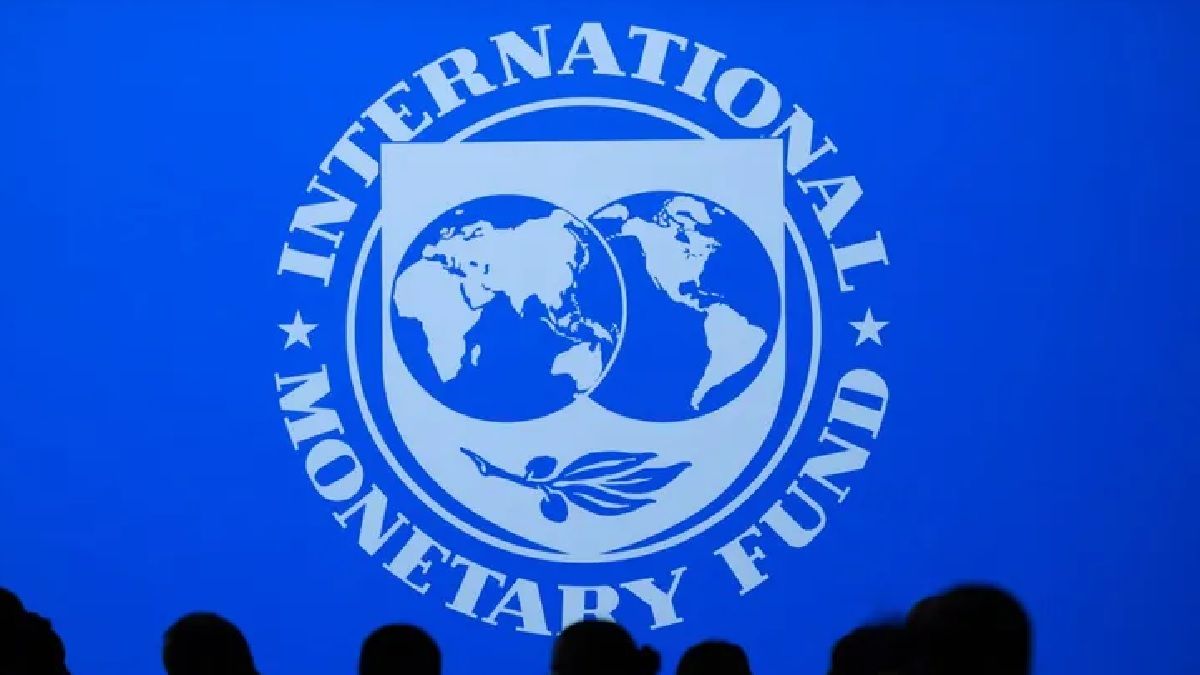Then, he clarifies that a “more challenging economic context” is observed, referring to the “increasingly severe drought.” For this reason, he maintains they are needed “stronger policy measures safeguard stability, address rising inflation and policy setbacks, and maintain the anchoring role of the program. For this reason, it is revisions to the reserve targets for 2023 are requested.
In this regard, as indicated in the Palacio de Hacienda the “new reserve accumulation floor for March, June, September and December, is reduced by more than 3,000 million to accumulate in March and by almost 2,000 million in 2023.
The agency, meanwhile, indicates that “in the context of a more complex economic environment, the review focused on evaluating progress in the implementation of the program and updating the macroeconomic framework.”
Then he recognizes the impact of “an increasingly serious drought” and proposes that it is necessary a stronger policy package to safeguard macroeconomic stability, address rising inflation and recent policy setbacks, as well as ensure achievement of the underlying objectives of the program.
He maintains that such policies they must be firmly and consistently implemented. The agreements reached according to the IMF statement are detailed below.
Fiscal policy
The authorities are engaged to reach the primary fiscal deficit of 1.9% of GDP in 2023 through continuous spending controls, better targeting of energy subsidies and social assistance, and better prioritization of capital spending, while protecting priority social and infrastructure spending, says the IMF statement prepared by Luis Cubeddu , deputy director of the Fund’s Western Hemisphere Department, and Ashvin Ahuja, chief of mission for Argentina.
A work by the consulting firm PXQ shows that in January of this year “the primary deficit was -$203,938million, with which the Government consumed 46% of the quarterly goal with the IMF in a single month”.
In order to meet the deficit reduction goals and strengthen the progressivity of energy subsidies, the authorities plan to continue implementing the agreed segmentation scheme, eliminating subsidies for higher-income residential users beginning in May and for commercial users by the end of 2023.
Monetary and exchange policy
To cope with continued inflationary pressures, which have picked up in recent months, the authorities intend to keep official interest rates positive in real terms.
Meanwhile, efforts will continue to ensure external competitiveness and strengthen reserve coverage, which the authorities plan to complement through the timely rationalization of the exchange rate policy.
They also commit not to use international reserves or issue short-term external debt instruments to intervene in parallel exchange markets.
financing strategy
Despite criticism from the opposition to the debt swap, the Fund rescues this policy by saying “with caution and well communicated a proactive market-based domestic debt management strategy”.
In the opinion of the organism this helps to “manage upcoming internal maturities, especially in the second and third quarters, mobilize internal financing and improve the functioning of the bond and currency markets, without increasing vulnerabilities in the future”.
Sergio Massa’s team reported that some “16,000 million dollars were exchanged, and that this guarantee “enables the generation of intra-state exchanges to improve maturity profiles”
Although the IMF also comments that “the authorities will continue to seek financing from multilateral and bilateral sources”, including by finalizing bilateral agreements with the few remaining creditors of the Paris Club.
For the organism these efforts will help to maintain the direct monetary financing of the fiscal deficit to a maximum of 0.6 percent of GDP in 2023, in line with the objectives of the program.
Modification
“While stronger macroeconomic policies and efforts to mobilize financing are expected to improve reserve coverage and reverse recent reserve losses, the IMF statement says”a modification of the objective of accumulation of net international reserves for 2023 is requested”.
This will accommodate partly the impact of the drought increasingly severe, while taking into account the countervailing effects of lower energy import prices and agreed policy measures.
These changes, for the most part “they will take place in early 2023, consistent with the anticipated impact of the drought.”
Warning
“In the future, it will be essential to maintain sound policies” although he accepts that it is possible “to adapt them as necessary to the evolution of external and internal conditions”. But, he warns that lTemporary administrative exchange rate measures “should not be a substitute for sound macroeconomic policy.”
Deficit
The authorities of the Palacio de Hacienda support the fiscal objective of 1.9%, although they point out the following issues:
- a) Continue to control spending in search of order
- b) Prioritize investment in infrastructure and social spending.
- c) Accelerate segmentation to end the regressiveness of subsidies. At this point, it should be noted that last month, the Secretary of Energy promised that this year the fiscal goal of reducing subsidies to 1.6% of the Gross Domestic Product will be met.
- d) Retirement moratorium: the IMF points out the importance of it being fair, aimed at the most vulnerable and without excess spending.
In accordance with the Fund’s Communiqué, Economy endorses that “positive interest rates be promoted” and that “mechanisms to increase external competitiveness (export promotion) are enabled to strengthen reserve coverage.”
The official interpretation is that Temporary exchange policy measures are authorized, as well as an expansion of instruments of the Cash with Settlement system.
Meanwhile, the agency states that reserves are not used for interventions in the foreign exchange market.
About the BCRA temporary overdraft target remains at 0.6% of GDP. Since to date the Treasury has not used this tool, it would allow access to more financing pesos, they clarified in the Palacio de Hacienda.
long negotiations
Throughout the weekend, the Minister of Economy, Sergio Massa, and his team held virtual meetings with members of the IMF, being able to reach an agreement that will enable a disbursement of USD 5.2 billion.
The understanding required two meetings between Massa and Kristalina Giorgieva, managing director of the organization, three with her second, Gita Gopinath and more than 140 hours of meetings via zoom with the technical staff.
It should be noted that, in the midst of a severe drought that is reducing income from agricultural exports, the Central Bank has lost reserves for more than USD1.4 billion so far this year. According to private calculations, the liquid reserves held by the monetary authority would be at a minimum of around USD 2,200 million.
The latest harvest projections, both from the Buenos Aires and Rosario Stock Exchanges, show that there would be a decrease in the order of 33 to 35% in the production of wheat, corn and soybeans, the country’s main crops. Consequently, between USD 15,000 and 17,000 million in exports would be lost – and perhaps more if conditions worsen.
As a reference, the increase in energy spending last year derived from the war in Ukraine was about USD 5,000 million, of which the drought would bring a negative impact three to four times higher.
As if that were not enough, the international financial markets are facing new stressful situations such as the fall of Silicon Valley Bank in the United States and the liquidity problems that other financial entities are going through. So much so, the Federal Reserve announced this Sunday that an additional line of financing was established to help banks meet the requirements of depositors and avoid eventual runs.
In this context, the government is not only unable to meet the reserve goal for this quarter (it is more than USD 4,000 million below), but the external front is highly compromised.
Source: Ambito




